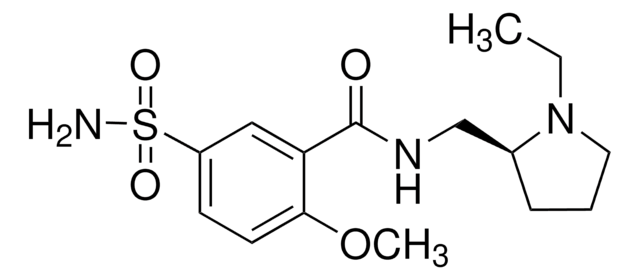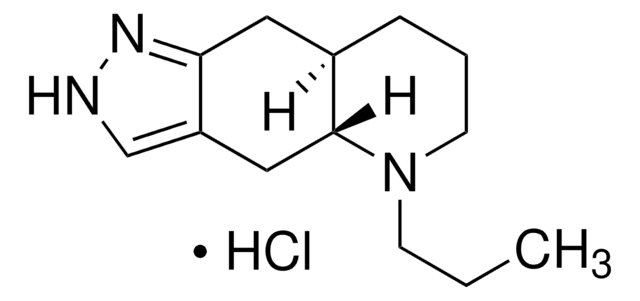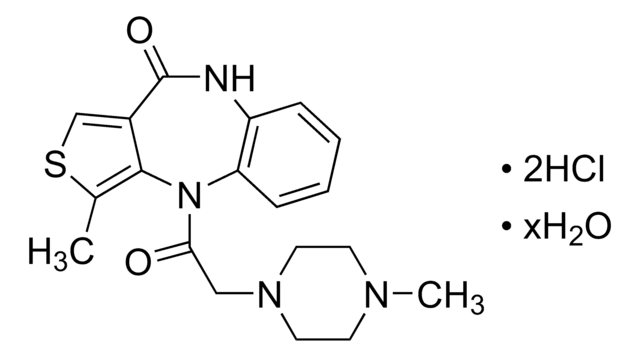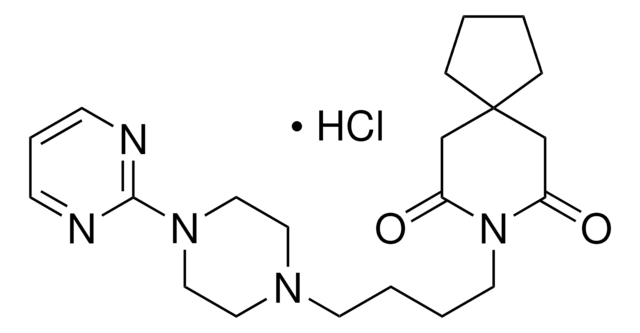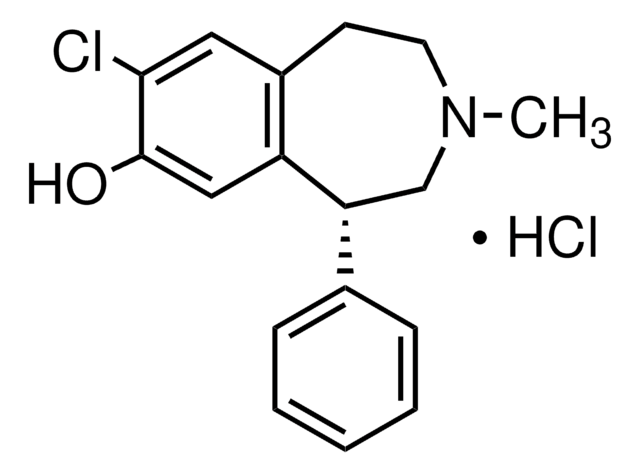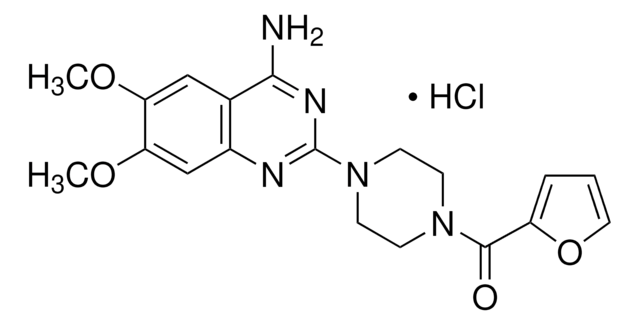S7395
Spiperone
solid
Synonym(s):
8-[3-(p-Fluorobenzoyl)propyl]-1-phenyl-1,3,8-triazaspiro[4.5]decan-4-one, R 5147, Spiroperidol
About This Item
Recommended Products
form
solid
Quality Level
color
light yellow
solubility
H2O: slightly soluble 0.2 mg/mL
0.1 M HCl: slightly soluble 0.3 mg/mL
ethanol: 1.5 mg/mL
45% (w/v) aq 2-hydroxypropyl-β-cyclodextrin: 2 mg/mL
SMILES string
Fc1ccc(cc1)C(=O)CCCN2CCC3(CC2)N(CNC3=O)c4ccccc4
InChI
1S/C23H26FN3O2/c24-19-10-8-18(9-11-19)21(28)7-4-14-26-15-12-23(13-16-26)22(29)25-17-27(23)20-5-2-1-3-6-20/h1-3,5-6,8-11H,4,7,12-17H2,(H,25,29)
InChI key
DKGZKTPJOSAWFA-UHFFFAOYSA-N
Gene Information
human ... ADRA1B(147) , DRD2(1813) , DRD3(1814) , HTR1A(3350) , HTR1B(3351) , HTR1D(3352) , HTR1E(3354) , HTR1F(3355) , HTR2A(3356)
rat ... Adra1a(29412) , Adra1b(24173) , Adra1d(29413) , Adra2a(25083) , Drd1a(24316) , Drd2(24318) , Drd3(29238) , Htr1a(24473) , Htr2a(29595) , Htr2c(25187) , Htr7(65032)
Related Categories
General description
Application
Biochem/physiol Actions
Reconstitution
Signal Word
Warning
Hazard Statements
Precautionary Statements
Hazard Classifications
Acute Tox. 4 Oral - Repr. 2
Storage Class Code
11 - Combustible Solids
WGK
WGK 3
Flash Point(F)
Not applicable
Flash Point(C)
Not applicable
Personal Protective Equipment
Regulatory Listings
Regulatory Listings are mainly provided for chemical products. Only limited information can be provided here for non-chemical products. No entry means none of the components are listed. It is the user’s obligation to ensure the safe and legal use of the product.
JAN Code
S7395-1G:
S7395-BULK:
S7395-VAR:
S7395-250MG:
S7395-250MG-PW:
Choose from one of the most recent versions:
Already Own This Product?
Find documentation for the products that you have recently purchased in the Document Library.
Our team of scientists has experience in all areas of research including Life Science, Material Science, Chemical Synthesis, Chromatography, Analytical and many others.
Contact Technical Service